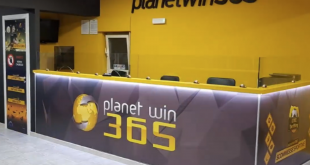As has been well reported, Ladbrokes (GVC) will have to cease trading for a day on 3 September as punishment meted out by the Belgian Gaming Commission for continuing to offer Virtuals product against (disputed) regulatory changes – a product it once held a national monopoly over. Ladbrokes’ Belgium business represents c. 1% of GVC’s group revenue. If 3 September is an average day it would cost GVC c. €0.1m in revenue, which would probably drop to c. €600k in profit terms, but given the 3rd is a Monday, the figure is likely to be somewhat less than this. However, while the overall amount at risk might be negligible for a business the size of GVC, the type of punishment is perhaps significant.
The tendency, and precedent, is to focus on the (small) amount, consider the Belgian response to be a bit ‘alternative’ (especially to a generation brought up on Eurotrash), and move on. However, the fiscal regulatory world is changing rapidly in a number of jurisdictions and regulators will be increasingly looking to other jurisdictions both for inspiration and for signs of operator behavior. Public punishments in one jurisdiction are therefore taking on a doubly important meaning for operators, especially those seeking to collect and expand POC licenses.
While the amount might not be significant from a group perspective and the competitive landscape in Belgium is not sufficiently developed for a one day closure to be particularly harmful, in our view, imagine if this were carried out in another jurisdiction. The most extreme impact for GVC would be the UK: if all group licences were to be affected for just one day, this would cost c. €3-4m and the brand damage would be material. While we are not suggesting the GB Gambling Commission is even close to considering such sanctions, the precedent should be sobering (and the Commission has meted out bigger disgorgements – just without the much more public trading disruption).
Another issue raised is question of how sanctions are determined and communicated. This week’s reports indicate that GVC may not have been informed directly of the Belgian Gaming Authority’s decision to enforce this penalty – but learned of it via third parties. If true, this represents a worrying development in approaches to regulation.
As we have written before, the mounting cost of licensing failures is likely to place a greater burden on regulators for transparency of determination. In Britain, the long string of voluntary settlements (which few amongst the major operators have escaped) have as a rule represented the culmination of many months of discussion between the Commission and the licensee concerned. Operators may not always have liked (or agreed with) the end result; but they can have had few complaints about the level of their inclusion in the process. Equally, there is an argument that a visibly ‘tough’ regulator reduces the likelihood of negative change at the legislative level (more of that below).
The regulatory landscape in Europe and elsewhere is shifting as a result of changes to market supply (including but not limited to the growing dominance of remote – machines are as hot a topic as ever), greater insight into (or fears about) harms, and pervading negative political moods (which encourage displacement of scrutiny with ‘political’ responses). Given the pressure that these factors place on the regulator-licensee relationship, trust is critical. Deterioration in trust between the regulator and the regulated (often arising from poor communication) is likely to result in adverse results all-round.
The sanction itself is not without logic (after all, temporary trading bans sit on the same logical path as outright licence revocations) and other regulators may consider adding it to their arsenals. Indeed, next month’s International Association of Gaming Regulators annual conference (in Copenhagen) offers an opportunity for cross-fertilisation of such ideas (as well as the development of cross-jurisdictional regulatory pacts). We may also hope that the Belgian Gaming Authority learns from its peers about how to conduct licensees relations.
On 3 September we will have the opportunity to witness an interesting natural experiment in terms of what Ladbrokes does (it will surely be under scrutiny from a number of stakeholders), how competitors behave and how the Belgian Gaming Authority and other regulators interpret the success of the trading ban. However, rather than displaying simply morbid interest in the regulatory banana skins of a competitor, GVC’s highly containable (this time) plight should be seen as a need to improve both regulatory relationships and work on more effective compliance responses.
Global: Regulation – Mad Men losing the battle; affiliate loses the plot?
“It’s nice to know you’re here. It’s nice to know you’re here. Now buzz off!” This is what passes for jovial football banter these days – at least so far as my prurient ears can make out. The lyrics also seem to be of growing relevance to the remote gambling industry – outside of the USA at least.
This week, the Irish Football Association encouraged speculation that it may follow the English FA’s example by binning its partnership with Ladbrokes (and nixing any future gambling tie-ups) once the current marketing deal expires later this year. Gambling has been a hot topic in Ireland in recent years – the result of the government’s Sisyphean efforts to update the country’s ancient gambling laws (some parts still so old, they were framed when mobile gaming meant a pack of playing cards on a charabanc) and a string of press stories (and court cases) involving high profile Irish sports stars with gambling problems.
While the FAI’s decision is unlikely to be significant in itself, it marks an increasingly uncomfortable relationship between (non-quadraped) sports and the promotion of gambling. Over the course of the last year we have witnessed important regulatory tightening of gambling marketing in a number of jurisdictions – notably Australia and Italy. In Great Britain, the Labour Party has called for a winnowing of sports sponsorship and it is likely that this will be a central theme within its review of gambling and mental health next month.
Meanwhile in Spain, the new socialist government appears to be on a course of reform with GamblingCompliance reporting this week that ministers are likely to “propose more muscular regulation on gambling advertising, but looks set to resist pressure from politicians and action groups for an Italy-style all out ban”.
It is because remote gambling lacks the defensible space (licensing and property) enjoyed by its terrestrial counterparts that advertising has become such a key battleground. The scale and nature of marketing for remote operators has excited controversy in the countries with the most liberal regulations. The backlash has been building for some time – spurred on in some cases by elements of the industry (motivated by the prospect of competitive advantage, concern for the industry’s reputation and perhaps in some cases heart-felt CSR concerns). Meanwhile, as one Westminster insider observed recently, defenders of the industry’s right to advertise seem unable to come up with positive consumer arguments for maintaining the status quo.
The post-PASPA USA is bucking the trend at the moment. Casino giant MGM Resorts has agreed a $25m sponsorship deal with basketball’s governing body, the NBA – and further deals are expected to follow. Given cultural sensitivities around sports and betting in the US, the long-term future of gambling advertising in the New World may rest in part on the ability of operators to learn from chastening experiences in the Old.
Moving from the controversial to the bizarre, a study this week has (allegedly) revealed that three-quarters of 18-25-year-old regular bettors borrow money in order to gamble. Given that borrowing to gamble is a diagnostic criterion for problem gambling, it suggests that (at most) only one-in-four regular gamblers could possibly be classified as non-problem gamblers. Such claims are not usual (or necessarily implausible depending on how “regular” is defined) but the source in this case is a turn-up for the books.
Somewhat improbably, the sponsor and agent of the ‘research’ in this instance is the online affiliate site CasinoBiggestBonus.com. Even in the sometimes bonkers world of affiliate marketing, the use of stories of gambling harm to encourage gambling is a new one on us. Thank God it’s the weekend.
GB horseracing: business news – Toast for Towcester?
It has been reported that Towcester Racecourse is entering administration. The course is a much loved small independent (c. £3m revenue) that has been brave enough to continue a policy of free admission and also expanded into dogs during a period of significant retrenchment in that product. However, escalating costs, fixture disruption due to dog track development (which became more permanent than perhaps was initially expected) and a complicated loan structure (including the Hesketh family, the original owners of the course) have reportedly led to the directors having no option but to seek legal protection from creditors. ARC is already reported to be riding the rescue, although the group has already part benefited from the cream of Towcester’s fixtures (7 out of 17 sold in 2015 for £1m to make way for and part-fund dogs expansion) and ongoing media rights through TRP/ATR structures.
It might be tempting to see in the demise of Towcester a broader sign of the fragility of the GB racecourse ecosytem (a state more often lamented than understood, in our view). However, there are many ‘special circumstances’ within Towcester’s issues (deliberate loss of fixtures, deliberate dog track development, complex financial structure, including the family) which more than muddies the waters in terms of a trend (or, indeed a clear outcome). Overall, GB attendances have been robust and media rights have been stronger than ever. There are undoubtedly serious issues brewing for GB racing with the loss of LBO media income, but we do not see the writing on the wall by any means yet…
New Jersey: sportsbetting – first full month hopes
New Jersey’s first full month of sports wagering has seen five landbased sportsbooks join the fray and post US$3.8m in revenue – optically an impressive start, especially as not all sites are onstream and the US sports season has yet to kick off in earnest. However, the way the NJ DGE calculates revenue includes the full value of unsettled bets – materially inflating the revenue figure, especially in the early days of a market and during a pre-season period (and this is both). Given that the DGE has reported a 5.8% ‘settled’ margin (in line with expectations), we can infer that the real revenue figure is about half that reported. In other words, c. 1% of landbased wagering revenue of US$272m for the month (itself up an impressive 10%). Equally, Monmouth Park reinforced the limitations of first-mover advantage, seeing a 63% fall in MoM activity. More encouragingly, online gaming reported 26% growth to US$26m – reinforcing our view that online will rapidly become a far more important battleground than landbased for NJ sports – a theory which August data should start to cast some initial light on. For now, we reiterate our view that while US casinos have a theoretical opportunity to create a powerful landbased sports product, the current offer is unlikely to deliver much more than niche relative to gaming.
Australia: video games regulation – no loot
A senate inquiry is to be conducted in relation to the proximity of loot boxes within video games to gambling. This follows recent similar investigations by a number of European jurisdictions, where Belgium took the decision to completely outlaw loot boxes, while France, the UK and Netherlands decided against regulatory intervention except where chance items had monetary or equivalent value.
According to press reports, state submissions from New South Wales and Victoia noted that items earnt through loot boxes may have ‘value’ to players, it was not thought the act of receiving random items fits the legal definition of gambling. Further submissions focus on the ‘psychologically addictive’ nature of the act of chance for prize within games and the overall effect on players its potential propensity to encourage real money gambling.
Loot boxes and treasure chests have been part of the fabric of games for almost as long as they have existed and are just another addition to the RNG elements. The problems begin when items ‘earned’ begin to have a convertible value either monetary or for exchange (as ‘skins’). While is unlikely to be the intention of games publishers to encourage gambling or gambling type behavior, it is potentially an unfortunate consequence of the ability to earn valuable items within the game (which is particularly sensitive as many minors have access to this). It is inevitable that further government and regulatory scrutiny will continue – however, the lack of a consistent decision on the status of loot boxes will make it very difficult for publishers to make universal alterations to its titles.
Pakistan: cricket spot-fixing – Jamshed banned for ten years for PSL fixing
Pakistani cricketer Nasir Jamshed has become the sixth player to be banned for an involvement in spot-fixing in the 2017 Pakistani Super League. Jamshed, described by the Pakistan Cricket Board as the “lynchpin” of the conspiracy, has been handed a ban of 10 years (having previously been banned for a year for not cooperating with the investigation into the matter).
This highlights the importance to sports events and leagues of ensuring their integrity is well protected. While the fact that the fixing has been prosecuted in this case is reassuring, there is also a considerable risk that the PSL will be tarnished by this episode in the long term, with supporters and investors possibly finding it difficult to trust the product going forward, in our view. It serves as a reminder that, as far as sports integrity is concerned, curing a problem is far better than tolerating it, but prevention easily trumps both.
US: Blockchain – linking together?
Capital One is working on using blockchain technology to establish more convenient and secure user authentication methods for instances such as banking security. It has applied for a patent on a Blockchain system that will receive, store and retrieve encrypted user authentication data, according to a filling released yesterday.
The proposed solution is described as “a distributed, non-reputable record of authentication interactions” that allows users to authenticate themselves across multiple institutions, but limits how much personal information is shared between them. In effect, the method retrieves identification data on a user when they commence the authentication process (assuming the user has a profile set up). The system will authenticate or reject the user based on the received authentication information, but the user data itself is kept securely on the blockchain.
These developments will have significant implications for the gambling sector, both directly and in terms of payments / supply chain developments. As a start, this could be implemented as part of the online account opening and KYC process, where by this technology can be used to link and authenticate the customers details across multiple gambling organisations. However, blockchain is a classic issue of where disruption meets regulation the impact may not be remotely what was desired. While several POS jurisdictions are already embracing blockchain, it will be critical for POC regulators to understand and facilitate this technology for the inevitable disruption coming to be a positive one for the compliant end of the sector…
Global: M&A Watch – Gaming Realms; JPJ Group; FanDuel
- Gaming Realms has confirmed that it has completed the same of its UK online casino B2C business to River UK Casino Limited and that initial consideration of £4.2m (cash) has been received.
- JPJ Group, in its half year results, has confirmed it has signed a share purchase agreement for the sale of its social business for cash consideration of £18.1 million.
- It has been reported that the co-founders of FanDuel, including former CEO Nigel Eccles, have issued a claim for $120m against new owners Paddy Power Betfair, having not received any consideration in the recent deal to acquire the business. It is reported that they claim the business was deliberately undervalued when its value should have been recalculated following the repeal of PASPA by SCOTUS









